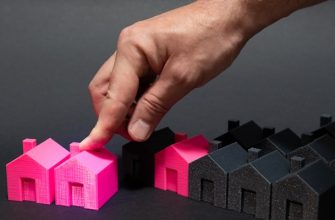- Understanding RWA: The Rise of Real-World Assets in Real Estate
- Blockchain Basics: How Technology is Transforming Property Ownership
- The Benefits of Tokenization: Making Real Estate More Accessible
- Navigating Legal Challenges: Blockchain’s Role in Property Rights
- Case Studies: Successful Implementations of Blockchain in Real Estate
- Future Trends: The Evolution of RWA and Its Impact on the Real Estate Market
Understanding RWA: The Rise of Real-World Assets in Real Estate
Real-world assets (RWA) are gaining significant traction within the realm of real estate, transforming traditional property ownership models. The integration of blockchain technology into real estate is revolutionizing how properties are bought, sold, and managed. RWA enables fractional ownership, allowing investors to own a portion of a property without needing to purchase it outright. This democratization of real estate investment opens doors for a broader audience, making property ownership more accessible than ever.
Blockchain technology enhances the security and transparency of real estate transactions. With the immutable nature of blockchain, ownership records are stored securely, reducing the risk of fraud and disputes. Additionally, smart contracts facilitate automated transactions, ensuring that all parties fulfill their obligations without the need for intermediaries. This streamlined process not only increases efficiency but also reduces costs associated with property transactions.
- Increased Liquidity: RWA allows for easier buying and selling of property shares, enhancing liquidity in the real estate market.
- Global Reach: Investors can participate in real estate markets across the globe, diversifying their portfolios without geographical limitations.
- Fractional Ownership: Investors can acquire a share of a property, lowering the barrier to entry for real estate investment.
- Transparent Transactions: Blockchain ensures all transaction details are recorded and easily verifiable, promoting trust among investors.
- Reduced Costs: By eliminating intermediaries and automating processes, RWA in real estate significantly cuts transaction costs.
The rise of RWA in real estate signifies a shift towards a more inclusive and efficient investment landscape. As more individuals recognize the benefits of blockchain integration, the potential for real estate investment continues to expand. This evolution not only empowers investors but also enhances the overall stability of the real estate market. The future of property ownership is being redefined through the innovative application of real-world assets, paving the way for a new era in real estate.
Blockchain Basics: How Technology is Transforming Property Ownership
Blockchain technology has emerged as a revolutionary force in numerous industries, with real estate being one of the most impacted sectors. The integration of blockchain into property ownership is changing the traditional paradigms of real estate transactions. By utilizing a decentralized ledger, blockchain enhances transparency, security, and efficiency in property dealings.
One of the fundamental advantages of blockchain in real estate is the ability to streamline the buying and selling process. Traditional property transactions can be lengthy and cumbersome, often involving multiple intermediaries. With blockchain, property ownership records are stored on an immutable ledger, allowing for quicker verification of ownership and reducing the need for extensive paperwork.
- Transparency: All transactions recorded on the blockchain are visible to all participants, fostering trust among buyers and sellers.
- Security: Blockchain’s cryptographic features ensure that property records are secure, reducing the risk of fraud.
- Efficiency: Automated processes, such as smart contracts, can facilitate transactions without the need for intermediaries, speeding up the entire process.
- Accessibility: By digitizing property ownership, blockchain can make real estate investments more accessible to a broader audience.
The use of blockchain technology in real estate is not just about improving current processes; it also creates new opportunities for innovation. Tokenization of real estate assets allows for fractional ownership, enabling smaller investors to participate in the real estate market. This democratization of property ownership can lead to increased liquidity and a broader investment base.
Furthermore, the integration of blockchain in property ownership can lead to more efficient management of real estate assets. Land registries and property management systems can leverage blockchain to simplify processes such as title transfers, property leasing, and maintenance records. This holistic approach to property management enhances the overall value proposition for property owners and investors alike.
As the real estate industry continues to embrace blockchain technology, the landscape of property ownership is set to evolve significantly. Traditional methods are being replaced by innovative solutions that promise to enhance the way properties are bought, sold, and managed. The future of real estate is undoubtedly intertwined with blockchain, paving the way for a more transparent, secure, and efficient market.
The Benefits of Tokenization: Making Real Estate More Accessible
Tokenization represents a significant advancement in the real estate sector, enhancing accessibility to property ownership through blockchain technology. By converting physical assets into digital tokens, real estate can now be fractionalized, allowing investors to purchase smaller shares of properties. This innovative approach breaks down the barriers traditionally associated with real estate investments, making it feasible for a broader range of individuals to participate in the market.
- Increased Liquidity: Tokenization enhances liquidity in real estate transactions, as tokens can be bought and sold on various platforms, facilitating quick and efficient trading.
- Lower Investment Threshold: With tokenized real estate, individuals can invest in properties with lower capital, making it more accessible for those who may not have sufficient funds to purchase entire properties.
- Global Reach: Tokenized real estate can attract global investors, creating a more diverse investment pool and enabling individuals from different regions to engage in local markets.
- Transparency and Security: Blockchain technology ensures that all transactions are recorded securely and transparently, reducing the risk of fraud and increasing trust among investors.
- Streamlined Processes: Tokenization simplifies the buying, selling, and managing of real estate assets, reducing the need for intermediaries and lowering overall transaction costs.
The benefits of tokenization not only democratize real estate investments but also pave the way for innovative financial models that can reshape property ownership. Investors can now diversify their portfolios with ease, enjoying the advantages of both traditional real estate and the dynamic nature of digital assets.
Navigating Legal Challenges: Blockchain’s Role in Property Rights
In the evolving landscape of real estate, the integration of blockchain technology plays a crucial role in addressing legal challenges associated with property rights. Blockchain offers a decentralized and transparent system that can streamline property transactions, mitigate fraud, and enhance the security of ownership records. By utilizing blockchain, stakeholders can ensure that property rights are clearly defined and easily transferable.
The traditional methods of documenting property ownership often involve extensive paperwork and can be susceptible to disputes. Blockchain technology, however, provides a tamper-proof ledger that records all transactions in real-time. This feature significantly reduces the risk of title disputes, as all historical data related to property ownership is securely stored and can be accessed by authorized parties.
- Enhanced Transparency: Blockchain enables all transactions to be visible to relevant parties, which fosters trust in property dealings.
- Reduction of Fraud: The immutable nature of blockchain records makes it nearly impossible to alter ownership details without consensus from all parties involved.
- Streamlined Transactions: Automated smart contracts can facilitate quicker transfers of property rights, reducing the time required for traditional processes.
- Global Accessibility: Blockchain can bridge geographical gaps, allowing international investors to engage in property transactions with ease.
As the real estate market increasingly adopts blockchain solutions, the legal framework surrounding property rights is also evolving. Governments and legal institutions are beginning to recognize the potential of blockchain to enhance property ownership security. This shift is leading to the development of new regulations that accommodate digital property rights, ensuring that the legal landscape keeps pace with technological advancements.
In summary, the integration of blockchain into real estate not only addresses existing legal challenges but also paves the way for a more efficient and secure future for property ownership. By leveraging the unique capabilities of blockchain technology, stakeholders can navigate the complexities of property rights with greater confidence and clarity.
Case Studies: Successful Implementations of Blockchain in Real Estate
Blockchain technology is increasingly transforming the real estate sector by enabling transparent, secure, and efficient property transactions. Several case studies illustrate the successful integration of blockchain into real estate ownership, demonstrating its potential to revolutionize traditional practices.
- Propy: Propy is a notable example of a company utilizing blockchain for real estate transactions. It allows buyers and sellers to complete the entire purchase process online, recording each transaction on a blockchain ledger. This ensures transparency and reduces fraud risks.
- Real Estate Investment Platforms: Platforms like Harbor and tZERO have begun offering tokenized real estate assets. These platforms leverage blockchain to enable fractional ownership, allowing investors to buy shares in properties, thus democratizing access to real estate investments.
- Uphold: Uphold has integrated blockchain to facilitate real estate investments by tokenizing properties. This innovation simplifies the process of buying and selling real estate, making it accessible to a broader range of investors while enhancing liquidity.
- BitProperty: This platform enables property owners to tokenize their real estate assets, providing a way to raise capital through the sale of digital tokens. By utilizing blockchain, BitProperty increases transparency and reduces transaction times significantly.
These implementations showcase how blockchain can streamline property ownership and investment in real estate. By ensuring secure transactions and enhancing transparency, blockchain technology is set to reshape the landscape of real estate ownership.
The adoption of blockchain in real estate not only improves efficiency but also builds trust among stakeholders. As more companies explore these innovative solutions, the future of property ownership looks promising, with blockchain leading the charge.
Future Trends: The Evolution of RWA and Its Impact on the Real Estate Market
The real estate market is undergoing a profound transformation, driven by the integration of Real World Assets (RWA) and blockchain technology. This evolution is reshaping property ownership and investment strategies, making transactions more transparent and efficient. As RWA continues to gain traction, several key trends are emerging that will significantly impact the future of real estate.
- Decentralization of Ownership: The advent of blockchain enables fractional ownership of properties, allowing individuals to invest in real estate without requiring substantial capital. This democratization of real estate investment broadens the market, attracting a diverse range of investors.
- Enhanced Transparency: Blockchain technology ensures that all transactions are recorded on a public ledger, making property ownership history easily accessible. This transparency helps to build trust among buyers and sellers, reducing the risk of fraud.
- Smart Contracts: The implementation of smart contracts automates and streamlines real estate transactions. Conditions are executed automatically, ensuring that agreements are honored without the need for intermediaries, thus reducing costs and time delays.
- Increased Liquidity: By tokenizing real estate assets, RWA allows for quicker and easier buying and selling of property shares. This increased liquidity will attract more investors and stimulate market activity.
- Global Market Access: The integration of RWA into the real estate sector opens up opportunities for international investments. Investors from anywhere in the world can participate in local real estate markets, fostering a more interconnected global property landscape.
As these trends continue to evolve, the impact of RWA on the real estate market will become increasingly significant. Stakeholders must adapt to this changing environment to harness the full potential of blockchain technology and RWA in property ownership. The future of real estate is not only about buying and selling property but also about leveraging innovative technologies to enhance the overall investment experience.






